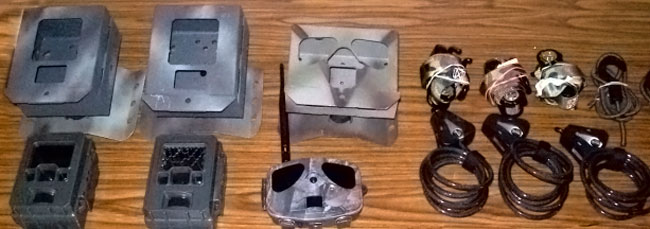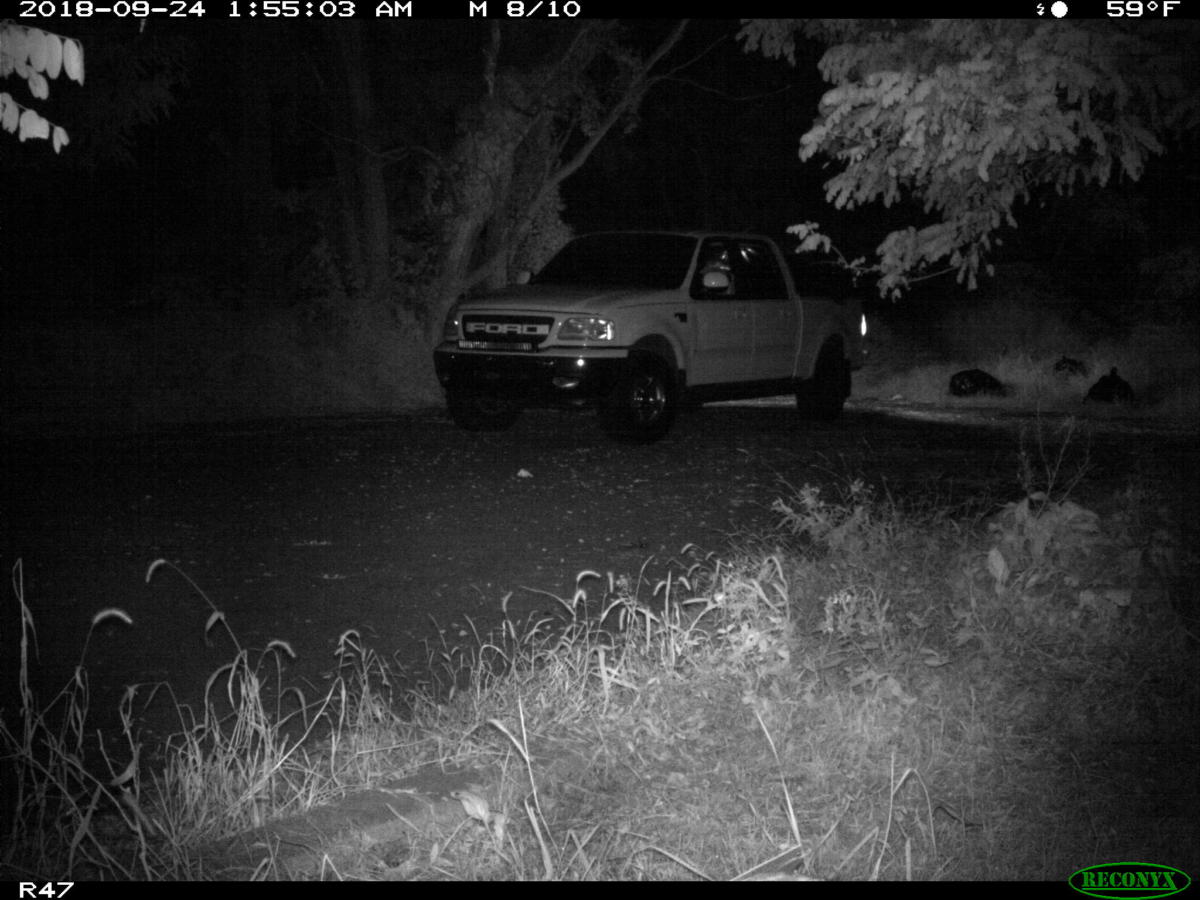Camera FAQs
How do we borrow the cameras?
Applicants must complete and submit the online program application . All applicants will be evaluated by a review committee and successful applicants will receive an award packet with resources on using cameras to help stop illegal dumping. After reviewing the packet, the borrower will contact the KPB to set up a day for training and installation. Applicants are also asked to contact their partners for the program, such as enforcement, magistrate judges, and media, to discuss illegal dumping in general and their participation in the program.
What is the camera loan time?
This can vary and depends on the participants continuing to have the time/staff resources to continue, if the dumping is still actively occurring, and the number of new applicants waiting for cameras from KPB. The anticipated loan period is approximately 3 months, after which it will be evaluated if it is worthwhile to continue using them at a particular site.
Do the cameras come with everything needed and/or is there a cost to the borrower?
Camera sets come complete, ready to be installed and turned on. The borrower’s email addresses will already be programmed into the wireless camera. All components needed to attach, secure and position each camera are included. All batteries including a 2nd set per camera, and 6 high quality SD cards (2 per camera) are included. Additional batteries and SD cards will be the borrower’s responsibility. Please note that only Panasonic eneloop Ni-MH, Energizer Ultimate Lithium or similar high-end, name-brand batteries and name-brand (such as SanDisk) class 10 SDHC SD cards (less than 32GB) should be used for optimum function and to comply with warranties.
How long do batteries last?
It depends on activity and weather. High and low temperatures will deplete batteries faster. Cameras installed in areas where they are triggered often will also drain faster, which includes foliage waving in front of the sensor. Poor cell service can also reduce the battery life of the cell camera. In general, a good rule of thumb is to plan on changing batteries in the cell camera every 2 weeks as the worse case. The non-cell batteries will last much longer. However if changing the cell camera's batteries, the user might as well change all 3 at the same time.
What kind of things must a user do after cameras are first installed?
When installing cameras, we place them in the best spots that we can while anticipating what a site is like when we're not there. After the cameras are first installed, it's important for the new user to visit the site and review some photos to ensure everything is working well. Maybe it was thought that cars are traveling from the left and it turned out they were coming the other way, or the flash at night is glaring on a tree branch. Night photos of license plates especially require fine-tuning for the best photos. Remember that a photo that doesn't capture any solid details won't help enforcement officers identify a suspect or prove to a judge they illegally dumped.
What is the on-going maintenance like?
In general users need to:
- Check photos emailed from the camera for activity and battery level.
- Keep the second sets of batteries charged, and swap them with the cameras in the field.
- Swap the SD cards and review photos for any evidence or improvements that could be made to camera angles or sensitivity.
- When evidence is found, they'll need to file the appropriate citation or work with their enforcement partner, and attend court hearings as needed.
- Fill out the bi-weekly progress report.
Is there ongoing technical assistance?
Yes, as long as funding permits. Most technical difficulties can be solved thru email or by phone. On-site assistance is available, if needed, again as long as funding permits. One aim of the program is for participants to learn how to successfully operate cameras themselves.
How many camera sets can we borrow at one time?
For new applicants, only one set. Multiple sets may only be borrowed if there is no waiting list. Camera sets are loaned out on a first come first serve basis to eligible applicants. If there is a wait list returning applicants will be placed on the bottom of the list. Keep Pennsylvania Beautiful reserves the right to reject applications for any reason.
A second set would only be offered to an applicant who has already been working with the cameras and has demonstrated a commitment to their maintenance.
Are cameras available to buy?
Yes, new camera sets and individual cameras are available for sale. Used cameras will be available for sale and cost will be determined at that time. For more information contact Rob Dubas at rdubas@keeppabeautiful.org or 724-836-4121 x 107.


